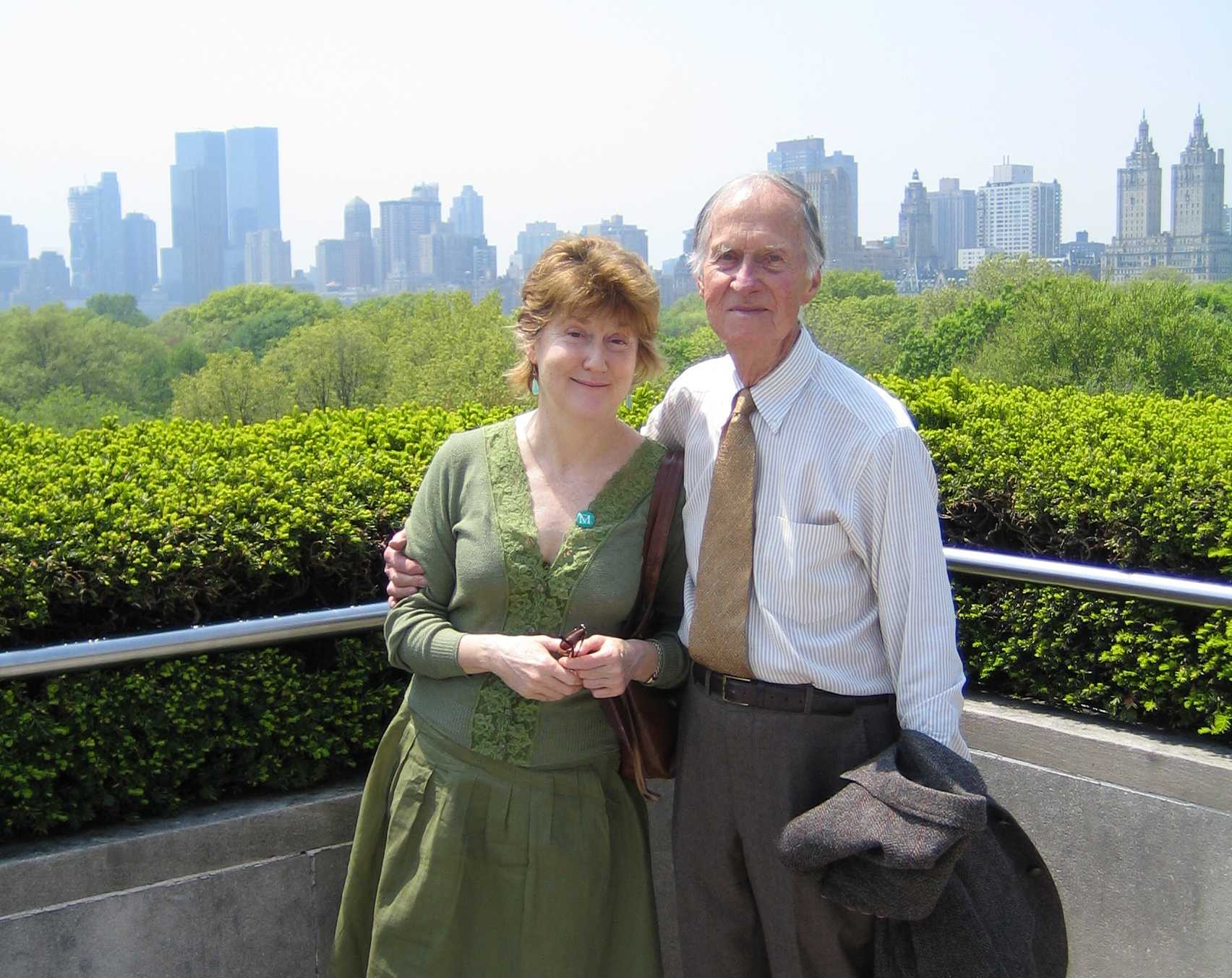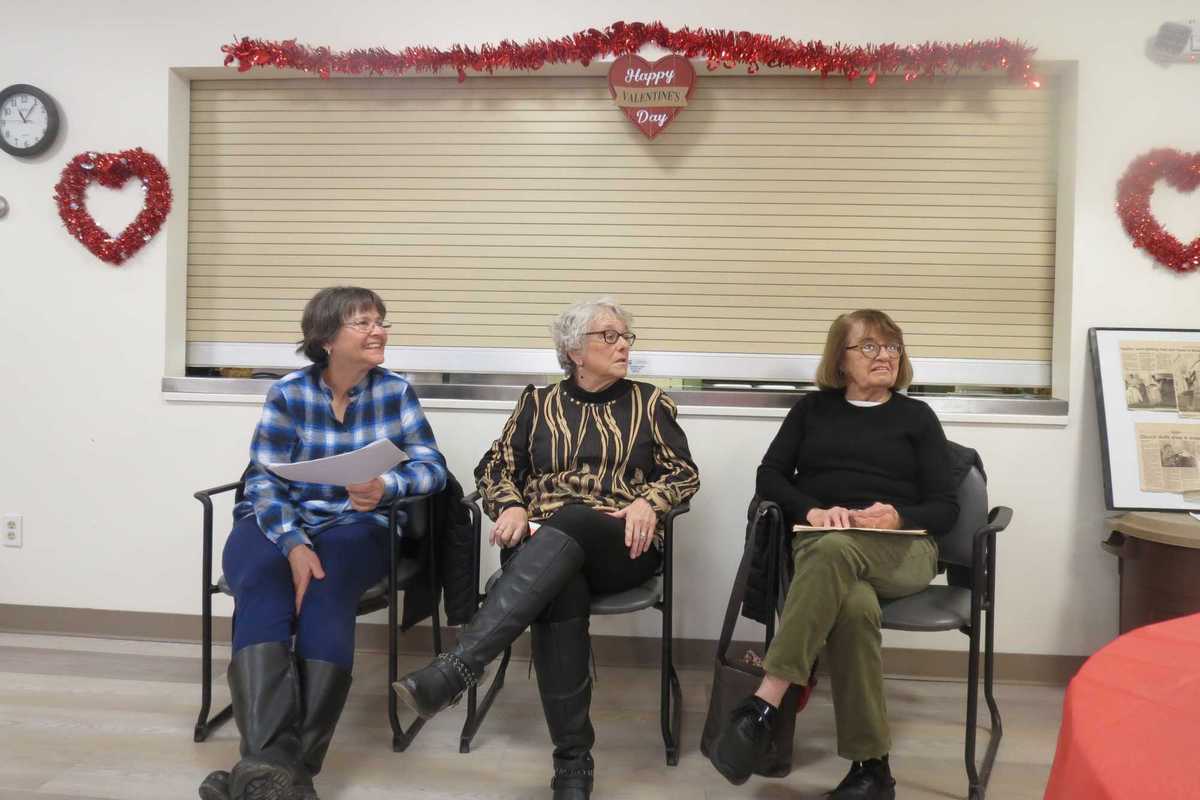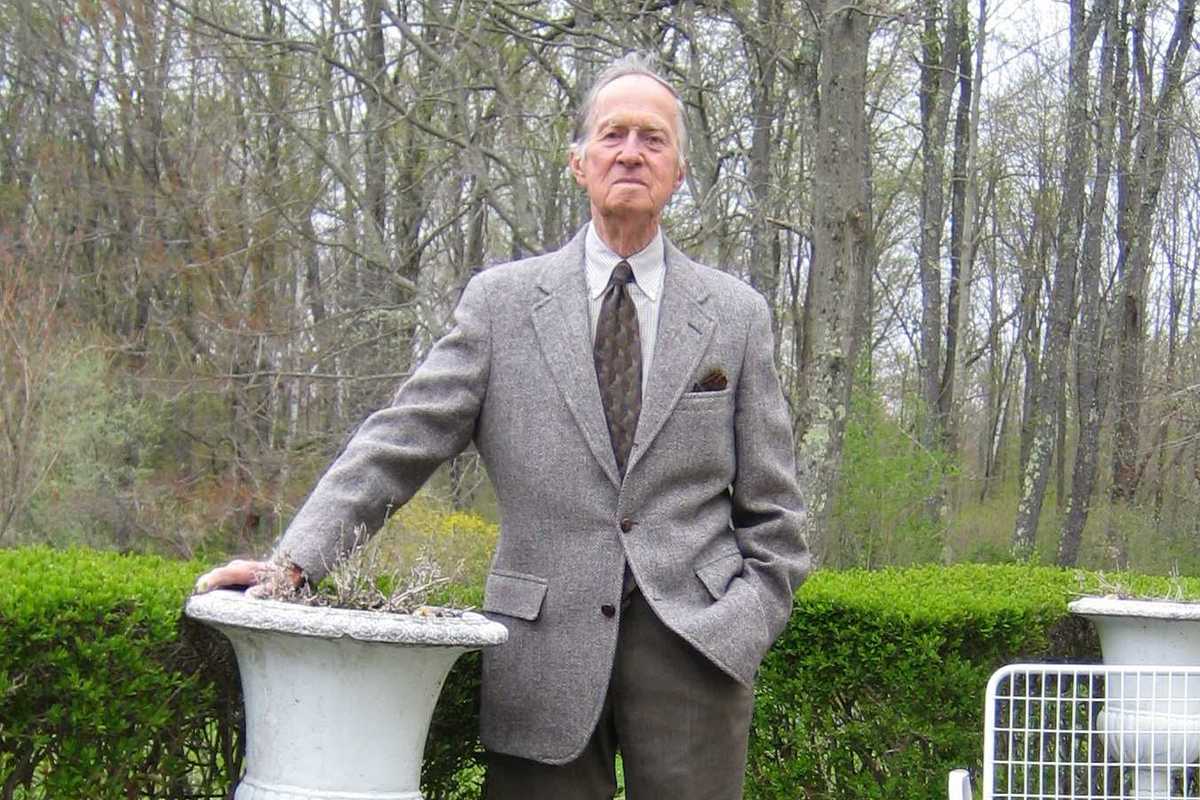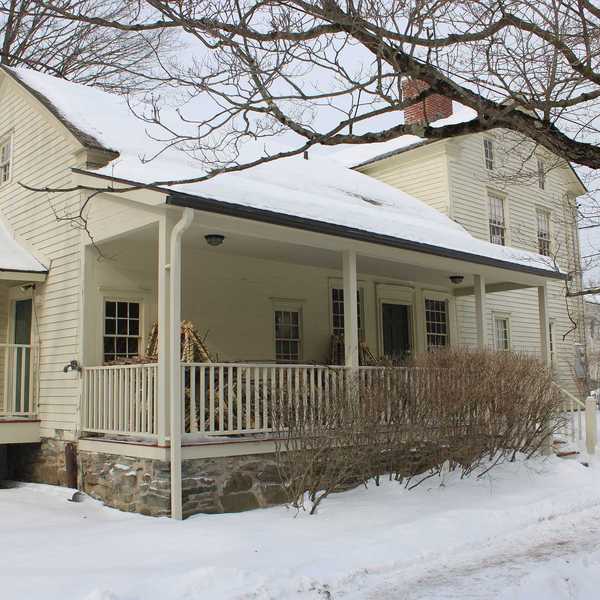Latest News
Harding, Horn support bills on bear control, hydrilla and cell tower siting
Patrick L. Sullivan
Feb 25, 2026
Farmers grappling with bears, lake advocates fighting invasive hydrilla and towns seeking a greater voice in cell tower siting decisions could see relief if three bills now advancing through the state legislature are approved.
In phone interviews Friday, Feb. 20, State Sen. Stephen Harding (R-30) and State Rep. Maria Horn (D-64) expressed support for Senate Bills 146, 145 and 144 — measures addressing bear-related livestock losses, hydrilla treatment delays and the authority of the Connecticut Siting Council.
Bears
Harding said SB 146 would give farmers expanded authority to protect both livestock and crops. The bill would allow the use of deadly force against bears that injure or kill livestock and would authorize the state Department of Energy and Environmental Protection (DEEP) to issue permits to shoot bears that have damaged crops during the prior growing season.
Horn said the legislation would also streamline the permitting process by eliminating a requirement that applications be notarized, calling the revised process “less onerous.”
Hydrilla
SB 145 targets delays in the state’s review of hydrilla treatment applications. Harding said DEEP has, in recent years, taken too long to process requests from local organizations, including Salisbury’s Twin Lakes Association, to treat infestations.
“DEEP just sits on these things until it’s almost too late,” Harding said.
Horn was less critical. “These are responsible, competent groups whose leadership has helped DEEP accelerate the process,” she said. “I think DEEP’s pretty good about it now.”
Siting Council
SB 144 would require the Connecticut Siting Council — which oversees applications for cell towers, wind turbines and certain energy infrastructure projects — to appoint a temporary, non-voting member from the host municipality for each application under review.
Horn described the council’s role as focusing on statewide infrastructure needs but said local representation would provide important community perspective. A town representative would not have veto power, she noted, but could ensure local concerns are formally heard. She also said the council currently lacks sufficient environmental expertise.
Harding argued the council has “for too long” overridden local zoning decisions without adequate neighborhood input. He said adding municipal representation would make council members “far more mindful” of local sentiment when evaluating projects.
Keep ReadingShow less
Officials say Housatonic Railroad herbicide plan ‘not following the law’
Riley Klein
Feb 25, 2026
CORNWALL — Local officials say the 2026 vegetation control plan submitted by the Housatonic Railroad Company fails to comply with a 2024 state law requiring greater transparency about herbicide use along railroad tracks.
The 16-page plan, distributed in February to Northwest Corner towns through which the railroad operates, outlines the chemicals HRRC intends to use to control vegetation along its right-of-way. Roundup appears first on the list. The company anticipates beginning herbicide applications after March 1, 2026, depending on weather and other factors.
Cornwall officials reviewed the plan during a Feb. 17 Board of Selectmen meeting.
Bruce Bennet, Cornwall’s tree warden and a member of the Housatonic Herbicide Working Group, said several of the proposed chemicals are not licensed for use in wetlands.
The plan does not identify environmentally sensitive areas along the rail line, which is required under Connecticut General Statutes Section 22a-66a(j).
“The only way to do that is to be able to produce a map showing those, which was a requirement of the legislative regulation, and they did not do that,” said Bennet. “They are not following the law.”
The regulation stipulates railroads must develop an annual operational plan that includes maps locating their rights-of-way and identifying sensitive areas not readily visible in the field, such as wetlands, waterways and wells.
Bennet said the working group produced maps and offered them to HRRC, but they were rejected.
Anna Timell, chair of the Cornwall Planning and Zoning Commission and a member of the working group, said concerns about herbicide use date back more than a decade. In 2015, she said, 24 white pine trees were killed along the railroad corridor after herbicide application.
Concerns intensified when residents realized how close spraying had occurred to bodies of water. The 2024 legislation was intended to address those concerns.
“I suspect the issue for them is that our geography is such that there’s water everywhere and it presents a real dilemma,” Timell said. “A lot more costly.”
Bennet noted there is a 45-day comment period to respond to HRRC’s plan. He urged Cornwall and other towns along the rail line — including Falls Village, Kent, New Milford, North Canaan and Salisbury — to express concern.
“The lack of maps makes this plan deficient,” First Selectman Gordon Ridgway said. He said a response letter will be sent to HRRC, and he plans to coordinate with leaders in the other towns.
The Housatonic Railroad Company did not respond to a request for comment.
Keep ReadingShow less
Quality Thrift turns deals into community support
Ruth Epstein
Feb 25, 2026
Guests at the latest ‘People and Places of Kent’ program speak about the Quality Thrift Shop. From left, Gloria Hill, Melinda Keck and Carolyn De Vita.
Ruth Epstein
KENT — It’s a bargain hunter’s paradise — with a purpose.
The Quality Thrift Shop, housed in the former parsonage of the First Congregational Church on North Main Street, not only provides items at reasonable prices, but helps to fill the coffers of a long list of charitable organizations.
Volunteers who help run the enterprise spoke on Feb. 18 at the latest “People and Places of Kent” session put on by the Kent Historical Society and the Kent Senior Center. Carolyn DeVita, Gloria Hill and the Rev. Melinda Keck, a retired pastor, described how the shop operates and why it continues to draw customers from near and far.
The shop, which opened in 1989, was the inspiration of sisters Marcy Ames and Bonnie Treacy. The pair had run a similar type of shop in an Arkansas church and believed one could find success in Kent. They were right.
Starting small in a tiny room in the church’s parish house, described by the speakers as “no more than a closet,” the operation took off. It became a popular destination, originally formed to raise money for the church’s outreach programs and a nutrition site in the Philippines. Donations were plentiful the first year, with a total of $4,550 raised, Hill said.
Sales dropped off after the initial year, but the shop went through a revival when Keck became the church’s co-pastor along with the Rev. Glenn Rainsley. “We didn’t need the parsonage because we had our own home,” Keck said, so Rainsley suggested the shop move into those premises. The house went through a transformation, with many volunteers contributing numerous hours toward the conversion. The shop’s new home, with much more space, opened in 1995.
What began as a church project is now a community endeavor. The shop is staffed by volunteers who sort donations, stock shelves and run the register. De Vita said the number of volunteers has dwindled, going from 40 in 1998 down to the current 28. New faces would be welcome.
The operation is overseen by a board of directors headed by De Vita. Its makeup consists of three non-church members, reflecting the idea of community inclusion, said Keck, adding, “so we’re not so insular.”
Revenue has increased over the years. She noted that in 1989, they took in $3,300; in 2000, $24,375 and in 2025, $52,414. By 2018, total receipts since its beginnings finally topped the $1 million mark.
The trio expressed gratitude for the steady stream of donations the shop receives. “We get some very expensive items [some men’s shirts that retail for $500 to $600] and we try to price them reasonably,” said De Vita.
Alicia Winter is knowledgeable about the value of clothing and puts worthy items online.
The wide selection attracts shoppers locally, as well as those who come distances to browse and buy. She said there is one woman from Massachusetts who posted about the shop on Instagram, which brought a whole new set of customers.
In addition to women’s, men’s and children’s clothing, the shop sells shoes, purses, jewelry, household goods, knickknacks, greeting cards and whatever other items come in—some rather quirky, such as a ceremonial bride’s costume and an old-fashioned Victrola. “We get so many things we have no idea what they are,” interjected Hill.
One person in the audience said he has a friend who comes from afar because of the quality of the inventory. He said she is pleased there is no junk. The women said the donations are scrutinized to pull out clothing that may be torn or show stains. A small amount of money is earned by selling non-usable clothing for rags.
While there are a few down sides, such as some shoplifting and complaints that the prices are too high, they are far outweighed by the good. In one case, a customer who discovered cash tucked inside a purchase returned after hours and slipped the bills through the door.
Proceeds all go to nonprofits. The shop distributes funds to educational, emergency response and social service organizations.
Generosity is shown in other forms, such as giving free clothing to those proven to be in great need.
De Vita, asked about expenses of the operation, said they amount to approximately $22,000 a year for such things as supplies, cleaning and shoveling snow.
The Quality Thrift Shop is open Tuesday through Saturday from noon to 4 p.m.
Keep ReadingShow less

Want more of our stories on Google? Click here to make us a Preferred Source.
New call to reopen case of long-missing Salisbury man
John Coston
Feb 25, 2026
Tom Drew at his home on Ravine Ridge Road in Salisbury.
Courtesy of Allison Drew
SALISBURY — The daughter of an elderly man who vanished without a trace from his Salisbury home 18 years ago has asked Connecticut State Police to appoint a new investigator to look into the case that to this day remains a mystery.
Allison Drew is haunted by the disappearance of her frail, 91-year-old father from his home on Ravine Ridge Road near the Massachusetts line after he got up from watching a movie and told his caregiver he was going for a walk. The unsolved case has weighed on Allison and her sister Bettina, Tom’s daughters, for almost two decades.
In 2020, Drew published a book about the case: “Search for My Missing Father, an American Noir” (Black Rose Writing), which examines what may have happened to her father in the time between his last conversation with a family member and the report that he was missing.
In December 2025, Drew decided to continue to press for answers, formally asking the Connecticut State Police to reopen the case.
“I would like to be able to bury my father before I die,” she said in an interview from her home in England.
At the time of his disappearance he was reportedly watching a movie. The caregiver said he got up and walked out of the room. After a few minutes when she went to look for him, he was nowhere to be found. That was July 21, 2007.
An extensive search led by State Police with K-9 dogs, a bloodhound and helicopters — joined by local firefighters and volunteers — yielded nothing. More than 500 flyers were spread around the Northwest Corner.
A national alert was issued for Tom Drew, a retired fashion designer from New York who suffered from dementia in addition to having some cardio-pulmonary issues. Press reports at the time noted that the family had alerted hospitals and homeless shelters in three states.
By mid-August, the active month-long search for the missing man was over, but State Police said they would continue to pursue information. A conclusion was drawn that if he had found his way into some kind of institutional care he would have been identified after a month had passed. If he had died, his remains would have been found because of the extensive searching, including the rugged terrain near his home known as Sage’s Ravine.
“The probability that he would not be found is astronomical,” said Allison in an interview last week. “Writing the book was helpful. But it was very stressful.”
The police investigation has not been officially closed. Drew said that once a year investigators review the case, but absent any new information it is shelved for another year.
Drew hasn’t heard back from Ronnell A. Higgins, Commissioner of the State Department of Emergency services and Public Protection, since asking him to appoint a new investigator to the case, noting what she called failures to collect certain kinds of evidence.

Drew is a professor emerita at the University of York, England, and author of scholarly books on anti-apartheid and anti-colonial movements in South Africa. Her book is a review of the facts in the case that became front page news and recounts the many rumors and suppositions and talk around town that captivated the community at the time, along with all the dead ends.
Drew hopes that the book might jog someone’s memory, prompting them to think of something that they remember that didn’t seem important at the time. For her part, she believes that her father was either buried or submerged in water somehow.
Drew also wanted to write about what it is like to have a missing person in one’s life. The recent disappearance of Nancy Guthrie, the 84-year-old mother of NBC “Today” show host Savannah Guthrie,has drawn significant attention since the early days of February when investigators believe she was taken against her will.
Drew found the police investigation lacking in numerous ways and her book details those perceived shortcomings and also conjectures about a lot of little things that in her view needed a closer look. Her view is that her father’s disappearance was suspicious.
“My father vanished without a trace even though he had severe cardio-pulmonary disease and could only walk a few hundred yards without getting breathless and red in the face. He also had dementia,” Drew wrote to the commissioner.
“Based on stereotypes about dementia the State Police assumed that he left his home on foot. They followed one line of inquiry only. But, despite massive searches, the failure to find my father or even his loose slip-on shoes indicates that he was driven off. The case needs reinvestigation to follow this line of inquiry.
“So, I would like the CSP to reinvestigate the disappearance from scratch,” she concluded.
Keep ReadingShow less
Wake Robin Inn sold after nearly two years of land-use battles
Christian Murray
Feb 21, 2026
The Wake Robin Inn in Lakeville has been sold for $3.5 million following nearly two years of land-use disputes and litigation over its proposed redevelopment.
Photo courtesy of Houlihan Lawrence Commercial Real Estate
LAKEVILLE — The Wake Robin Inn, the historic country property at the center of a contentious land-use battle for nearly two years, has been sold for $3.5 million.
The 11.52-acre hilltop property was purchased by Aradev LLC, a hospitality investment firm planning a major redevelopment of the 15,800-square-foot inn. The sale was announced Friday by Houlihan Lawrence Commercial, which represented the seller, Wake Robin LLC.
Tom Cervone of CR Properties Group brokered the deal for Aradev.
Representatives of CR Properties and Aradev could not be reached for comment. Terms of the transaction, including whether the closing was contingent on the previously granted special permit or pending litigation, were not disclosed.
Long known as a wedding and retreat destination, the inn is slated to be transformed into what Aradev has described as a boutique hospitality campus serving Salisbury and the surrounding region.
Under the redevelopment plan approved by the Salisbury Planning and Zoning Commission in October 2025, the number of guest rooms would increase from 38 to 54. The project also includes a 2,000-square-foot detached cabin, expanded event space, a sit-down restaurant and fast-casual counter, as well as a spa, library, lounge, gym and seasonal pool.
The commission voted 4–1 to grant a special permit after seven public hearing sessions, adopting a nine-page resolution with 40 conditions. The proposal had been scaled back from an earlier version, eliminating a detached event barn.
Despite the approval, neighborhood opposition has remained strong. Wells Hill Road residents Angela and William Cruger filed two lawsuits challenging both an underlying zoning change and the redevelopment approval.
In late January, a Connecticut Superior Court judge in Torrington dismissed the couple’s lawsuit alleging that a 2024 zoning amendment allowing hotel development in the Rural Residential 1 zone where the inn is located was illegal “spot zoning” designed specifically to benefit the Wake Robin project. The court found the plaintiffs failed to demonstrate that public notice of the regulation was procedurally deficient.
When adopted, the amendment drew scrutiny from opponents who argued it had been crafted to advance the Wake Robin redevelopment. Town officials and land-use staff maintained the change was part of a broader effort to address longstanding nonconformities affecting historic inns across Salisbury.
A second lawsuit — an appeal of the commission’s approval of the redevelopment plan — remains pending.
Keep ReadingShow less
Kent commission tackles Lane Street zoning snag
Alec Linden
Feb 20, 2026
Lane Street warehouse conversion raises zoning concerns in Kent
By Alec Linden
KENT — The Planning and Zoning Commission is working to untangle a long-standing zoning complication affecting John and Diane Degnan’s Lane Street property as the couple seeks approval to convert an old warehouse into a residence and establish a four-unit rental building at the front of the site.
During the commission’s Feb. 12 meeting, Planning and Zoning attorney Michael Ziska described the situation as a “quagmire,” tracing the issue to a variance granted by the Zoning Board of Appeals roughly 45 years ago that has complicated the property’s use ever since.
The Degnans’ attorney, Jay Klein, initially appeared before the commission late last year with a proposal to amend the zoning regulations to accommodate the project. Commissioners and Ziska, however, expressed reservations about rewriting the regulations for a single property.
In the months that followed, Ziska and Klein worked together to identify an alternative path forward. They ultimately found one in Regulation 9320.4 of the town’s zoning code, which permits a nonconforming use to be changed to another nonconforming use, provided the new use is no more detrimental to the neighborhood’s character.
Under the revised proposal, the warehouse would be converted into a residence, and the four-unit building at the front of the property would be approved for residential rental use. Commissioners responded favorably to the approach, as did several neighbors who spoke in support. Residents noted that the plan would permanently eliminate the possibility of the warehouse returning to industrial or commercial use.
Over the years, the building has housed an auto body shop, an aquarium store, a sign production facility and other commercial operations.
The commission voted to keep the public hearing open until its March meeting to allow for additional discussion.
Keep ReadingShow less

Want more of our stories on Google? Click here to make us a Preferred Source.
loading











